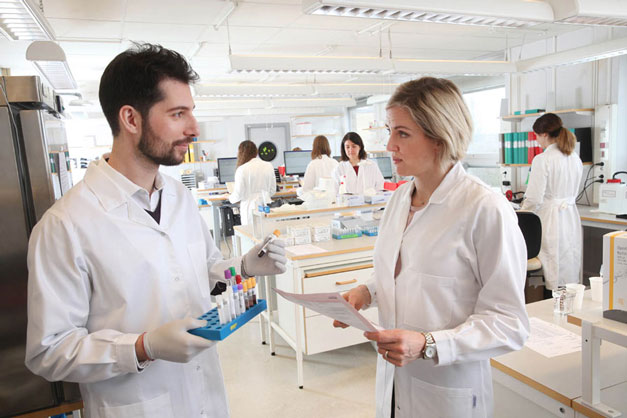- Other Products
- CCP
Successful drug development requires getting critical development and regulatory decisions right and it is common knowledge that all drugs must undergo rigorous testing before they can be safely used in patients.
Pharmacokinetic (PK) and toxicokinetic (TK) inspection are two important and related ways of ensuring the safety of a drug. The results of PK and TK inspections allow pharmaceutical companies to make informed decisions regarding the safety profile of the drug and whether it is worth pursuing the continued development of the drug.


Successful drug development requires getting critical development and regulatory decisions right and it is common knowledge that all drugs must undergo rigorous testing before they can be safely used in patients.
Pharmacokinetic (PK) and toxicokinetic (TK) inspection are two important and related ways of ensuring the safety of a drug. The results of PK and TK inspections allow pharmaceutical companies to make informed decisions regarding the safety profile of the drug and whether it is worth pursuing the continued development of the drug.
PK, which has been used in drug development for over 50 years, is the study of the dynamic movements of the drug through the body.
It involves analyzing drug absorption, distribution, metabolism, and excretion (ADME) in a laboratory animal or human.
Toxicology (TK) studies, on the other hand, are of more recent origin and are now a required component of toxicology studies. TK is the branch of pharmacology that describes the behavior and effects of drugs at very high doses in preclinical studies.
Pharmacokinetic and toxicokinetic studies provide useful information, which facilitates assessment of safety and is a pivotal part of understanding the potential effectiveness of a drug.
PK and TK analyses are very similar but differ in a few parameters, the most notable of which is that TK studies are carried out at much higher dosages, which also means that they are carried out exclusively in animals. Other ways in which PK and TK studies include changes in solubility, stability, absorption, protein bindings, clearance, renal excretion, physiological feedback, and drug interactions.
PK/TK inspection can be challenging though and can require unique solutions for each drug development project.
Wieslab Bioanalytical Services are experts in bioanalysis for testing of large molecules and can help bridge the gap between ongoing large molecule projects and set goals.
Using a wide range of techniques and technology platforms to meet the needs of our customers, we always work to optimize existing methods to increase efficiency and robustness.
Our agile, flexible team of scientists is continually developing and validating new methods and technologies to meet the ever-changing and increasing demand of our clients.
We conduct our high-quality PK and TK assay procedures and results strictly in compliance with GLP regulations and in accordance with international regulatory guidelines (FDA, EMEA, ICH). Measurements are performed using the bioanalytical platforms ELISA or Meso Scale Discovery (MSD). Furthermore, we perform measurement of drug concentration levels in healthy volunteers and patients as part of pharmacokinetic (PK) investigations for Biologics and Biosimilars in clinical phases.
Visit our bioanalytical services page to learn more about our capabilities, and find out how our scientific experts can help you with designing and conducting PK & TK studies.